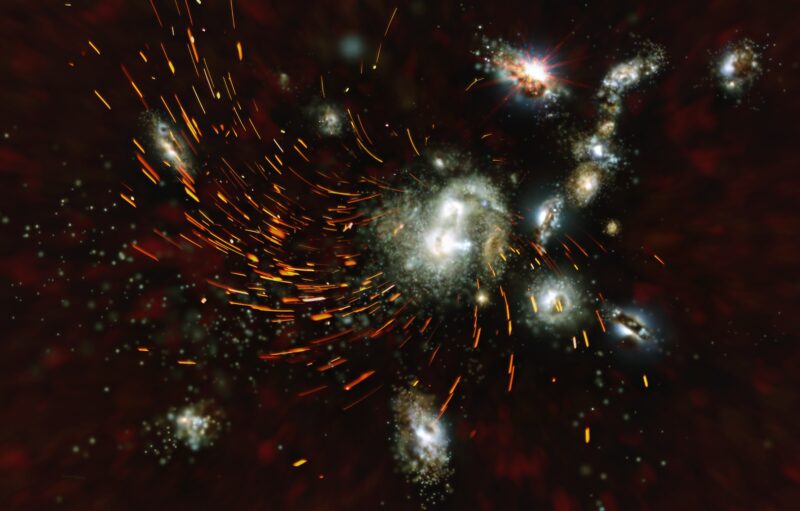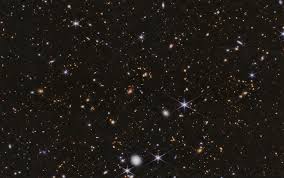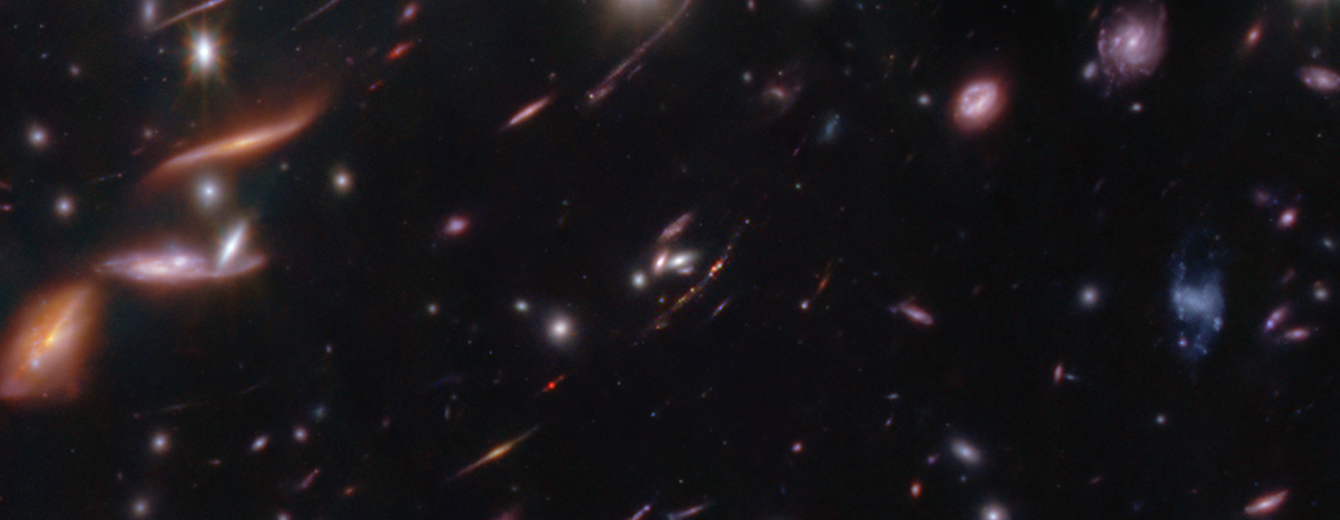
Astronomers found evidence a giant elliptical galaxy may form through the rapid collapse of a young galaxy cluster.

Scientists recently discovered that the giant 'conveyer belt' currents that push star-forged material out of our galaxy and pull it back in can also transport carbon atoms.

Galaxy clusters -- the big cities of the universe -- are home to many giant elliptical galaxies that have completed their growth and are not forming stars. However, it is still unclear what has shut down star formation.

For the first time, NASA's James Webb Space Telescope has detected and "weighed" a galaxy that not only existed around 600 million years after the big bang, but is also similar to what our Milky Way.

The Milky Way is only one system and may not be typical of how other galaxies formed. That's why it's critical to find similar galaxies and compare them

Astrophysicists working with the James Webb Space Telescope (JWST) have found a surprising amount of metal in a galaxy only 350 million years after the Big Bang.

New research has just answered one of the fundamental questions about our universe: Why did some of the oldest, most massive galaxies go quiescent early in their formation? The answer, we now know, is because they ran out of cold gas.

Astronomers have now found a so-called “cold quasar” in which star formation has managed to continue even in the presence of a ravenous supermassive black hole. The team studied a quasar 5.25 billion light years away.

Astronomers have identified six previously mild-mannered galaxies that suddenly transformed into voracious quasars, erupting in feeding frenzies powered by supermassive black holes.